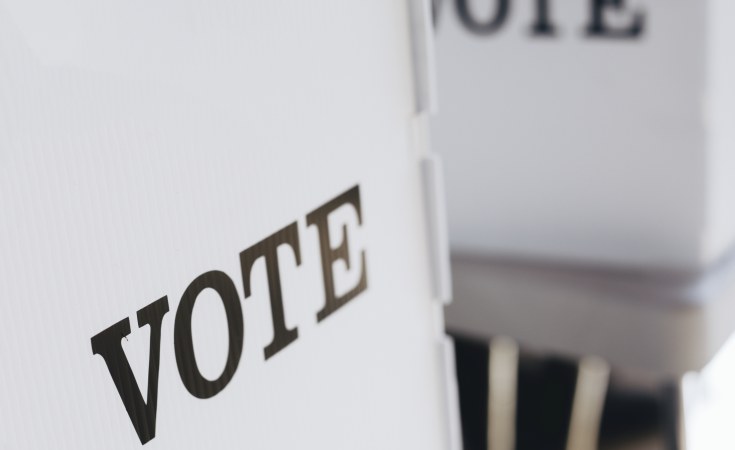Despite the promise of technology and new legislation, Nigeria's tightly contested elections have resulted in growing mistrust and revealed deepening divides.
In Nigeria's previous elections, votes were largely split between two parties - the APC of outgoing President Buhari and the PDP that held power from 1999 to 2015. This time, the 25 February vote saw four different presidential candidates win majorities at state level. President-elect Bola Tinubu received the least number of votes, and lowest winning percentage, of any victor in the Fourth Republic (1999 to date), taking just 36.6 per cent of the total votes cast. The runners-up have already started legal challenges to his win.
This increasingly fractured electoral landscape demonstrates the extent of Nigeria's political divisions and makes assessing the accuracy of results announced by the Independent National Election Commission (INEC) exceptionally difficult. Even attempting to review the performance of the electoral body can lead to accusations of 'endorsing results'.
Preliminary analysis by the Centre for Democracy and Development (CDD) identified six key issues - identity, insecurity, institutions, information disorder, inter and intra party squabbles and inducements - that would shape the elections. Perhaps now, having dotted our i's, we can cross our t's - trust and turnout are the biggest stories in the post-election review of the elections.
Trust in the process?
The major institution charged with overseeing the presidential elections process was the INEC - which was well-resourced, some $2 billion invested in it for these elections. It continues to face questions over logistical shortcomings and technology failures, notably challenges with the Bimodal Voter Accreditation System (BVAS) and the limited functionality of the INEC results viewing portal (IReV). IReV was supposed to improve transparency by displaying digital copies of result sheets from all the nearly 180,000 polling units once they were signed.
INEC and its technology are not solely responsible for this crisis of confidence in the electoral process.
But data on the IReV portal remained incomplete even when the winner was announced, driving rumours of electoral malfeasance on social media and fuelling mistrust in the result. The fact that results failed to tally with opinion polls, which largely predicted a win for Labour Party's Peter Obi, also added to calls for the process to be reconducted - notably including former President Olusegun Obasanjo who had endorsed Obi.
INEC and its technology are not solely responsible for this crisis of confidence in the electoral process. Political parties were guilty of engaging in vote buying -- documented by a Chatham House report on the practice in 2022 - which tarnishes the legitimacy of their wins. Others were able to use their control of state governments to engage in targeted voter suppression and intimidation, with incidents of violence against people coming out to vote reported almost nationwide.
Such tactics have a long track record in Nigeria. But the technological innovations introduced by INEC had been heralded as 'game changers', following successful deployment during the off-cycle gubernatorial elections in 2022 (Ekiti and Osun), and had significantly raised popular hopes of a clean process - their failure to live up to these lofty expectations may have done more harm than good.
Turning out the vote
Violence and intimidation also affected voter turnout, compounded by the fuel and cash shortages that hampered preparations. Engagement appeared to be strong in the run-up to the election, particularly among the young people who comprised more than 70 per cent of 9 million plus new voters added to the register before 2023.
Combined with the unprecedented division of votes between four leading candidates, President-elect Tinubu's mandate would flow from less than 10 per cent of Nigeria's electorate.
But of the 93.5 million registered voters, only 87.3 million had collected permanent voter cards on election day, and less than a third of them ultimately cast a ballot. Turnout overall was just 27 per cent, a record low.
Combined with the unprecedented division of votes between four leading candidates, this means that, if confirmed by the courts, President-elect Tinubu's mandate would flow from less than 10 per cent of Nigeria's electorate. This is a worrying trend, that both the government and the political class in general need to reflect upon - there is an urgent need to improve the quality and relevance of Nigerian democracy.
Furthermore, the geographic distribution of votes points to the increasing salience of ethno-religious identities in Nigerian politics. Where previously voting patterns had been defined by cross-cutting identity markers - notably along generational lines, with younger and older voters gravitating towards different candidates - in 2023 those voters that did turn out were concentrated in the 'home' communities of the leading candidates.
Idayat Hassan is Director, Centre for Democracy and Development. Dr Alex Vines OBE, is Managing Director, Ethics, Risk and Resilience; Director, Africa Programme.


